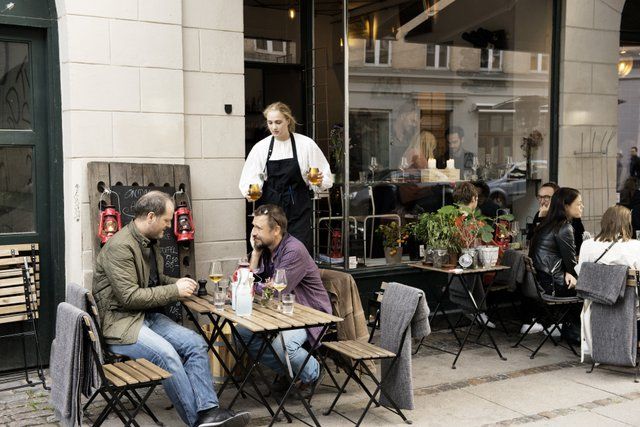Do you prefer an open, lively city or a quiet nightlife scene from Sunday to Thursday, so you can get your sleep before going to work the next day?
That’s the question many Copenhageners, as well as political parties, are asking at present. Should guests at bars and restaurants retreat indoors when it turns 22:00 on weekdays?
A slender one-vote majority by the Technical and Environmental Committee at Copenhagen City Hall last week backed the proposal, which is now the subject of a public consultation until August, when it will be voted upon again.
Right-wing disagreement
The right-wing parties strongly disagree. Venstre supports bars and restaurants throughout the city offering outdoor serving past 22:00, but Konservative argues that residents in neighbouring properties have a reasonable claim to peace and quiet when the evening draws to a close.
“We must have a city you can live in: one in which you get a good night’s sleep and can get up and go to work the next day. We are not doing this to bother the restaurants, but we have to have a balance,” committee member Morten Melchiors, the Konservative group chair, told TV2 Kosmopol.
Venstre does not understand how Konservative can support the proposal.
“The party has forgotten what kind of municipality they are elected in. It is Denmark’s capital – a metropolis with room for life. We have a restaurant industry that is recognised for its gastronomy, and sitting out is an important part of life in Copenhagen,” reasoned committee member Louise Theilade-Thomasen, Venstre’s group chair.
Individual dispensation clause ruled out … for now
There are three areas exempt from the new rules: Kødbyen, Nyhavn and Metropolzonen, the city centre zone circling Rådhuspladsen, the town hall square.
Konservative has tried to get an option adopted for restaurants to apply for a dispensation for extended outdoor service after 22:00, but with little success. Any such application would require a neighbourhood c.
“But the others – including the left-wing parties – unfortunately voted against that idea. If people don’t mind the noise as much as some say, then these individual consultations can be quickly concluded,” added Melchiors.
The public hearing concludes late August, after which the politicians will again debate the matter. As it stands now, only one vote separates whether late outdoor serving should continue to be permitted across most of the capital.













